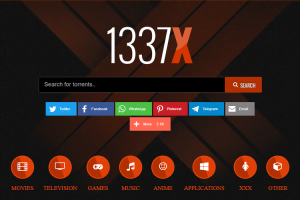The insurance industry employs just over 500 000 people in the USA and is expected to grow by an average of 7% by the year 2030, per the US Bureau of Labor Statistics.
Pass insurance subsector- and state-specific licensing exams is required to practice as an insurance service provider. Tests differ by state as well as by content, such as taking the Property and Casualty Insurance Exam, or the Life and Health Insurance Exam. While these barriers to entry could seem overwhelming and anxiety inducing, as with any exam, the below tips can aid in your quest for a pass and get you on track to becoming a licensed insurance professional!
Familiarise Yourself with the Details and Requirements of the Exam
Since the exams differ from state to state in content, format and requirement, it is safest to consult an official government or industry site for specific information on your state, such as this informative California government website. Knowing details such as how to register, how much you need to pay, and how far in advance you need to schedule your exam can assist in allaying general anxieties surrounding the exam.
Establish The Format of Your State’s Exam
While insurance licensing exams are largely timed and proctored (taken in the presence of an administrator), a number or aspects can vary according to state and subject matter, such as the length of the exam and whether or not it follows a multiple-choice format throughout. Knowing what to expect on the day of your exam can help you avoid any surprises that may throw you off.
Take Sample Tests Where Possible
Taking a sample test also serves the purpose of avoiding surprises (amongst other things), but these can be especially helpful even if they are not specific to your state. Request sample material from your state’s testing facility in order to aid your preparation, and also be aware of the existence of various universal prep tests that could be an indication of potential content, even if the format differs slightly from that of your state.
Create a Study Plan
Once you have all the administrative details surrounding the exam figured out, you are able to create a study plan that works for you. Attempt to establish the amount of time you need to work through all the material, accounting for extra time to do revision and take sample tests. In this way, you are better able to manage your study time and systematically work through everything you need to do before the exam. Experts also suggest taking frequent study breaks for optimal learning.
Find Your Most Effective Learning Methods
People learn differently and attempting to force yourself to learn in a particular kind of way, or as others learn, could end up being largely counterproductive and resulting in much wasted time and ineffective learning. Do some research about different study methods, such as using key cards, making presentations, reciting work out loud and repetition exercises, amongst others. Find what works for you and implement it into your daily routine in order to become a more efficient learner. This may even improve your learning experience and make it less cumbersome.
Avoid Test Anxiety
While test day is important, it remains the mere culmination of all the preparation that has come before it. One of the best ways to alleviate test anxiety is to feel and be prepared for the exam by following the tips mentioned above. Follow tried and true test day advice such as keeping hydrated, eating a healthy meal on the morning of the exam and getting a good night’s rest the evening before. As Patricia Blissitt, a qualified nurse specialising in research and neurology, points out, memory and learning are interconnected, and sleep certainly affects the memory.
Final Thought
Although it may seem confusing to try and figure out state-specific licensing requirements, many of the exams are largely similar and a number of universal tips could be applied in this regard, such as those mentioned in this piece, and in this easy to follow How to Pass the Insurance Exam guide by The Really Useful Information Company (TRUiC). Being well prepared is essential, and with all the tips and tools mentioned here, you are well on your way to successfully preparing for your insurance exam!


